Join us for a study afternoon and tour of Bill Brandt / Henry Moore with The Hepworth Wakefield curators and special guests Alice Correia (University of Salford), Martina Droth (Deputy Director of Research, Exhibitions and Publications / Curator of Sculpture, Yale Center for British Art), Paul Messier (Photography Conservator and Pritzker Director, Lens Media Lab, Yale Institute for the Preservation of Cultural Heritage) and John Wyver (University of Westminster).
Through a series of presentations, we will explore the thematic concerns of the exhibition, with a focus on the intersection of photography and news-media in the work of Brandt and Moore. See below for programme details.
Tea and coffee will be provided.
Book Your Place
A proportion of tickets for all bookable events and workshops are available at member rate, find out more about membership.
If you have any questions or special requirements then don’t hesitate to get in touch by emailing events@hepworthwakefield.org or calling 01924 247376. Should The Hepworth Wakefield need to cancel the event, your ticket will be refunded in full.
Schedule
- 1pm: Registration and welcome
- 1.15pm: Introduction to the exhibition and publication by Martina Droth (Deputy Director of Research, Exhibitions and Publications / Curator of Sculpture, Yale Center for British Art)
- 1.45pm: Exhibition tours led by Martina Droth and Clare Nadal (Assistant Curator, The Hepworth Wakefield)
- 2.30pm: Refreshments
- 3-3.20pm Paul Messier (Yale Institute for the Preservation of Cultural Heritage): Sculpture, Photography and the Printed Page
- 3.20-3.40 John Wyver (University of Westminster): Art, War and Modern Britain on Page and Screen
- 3.40-4pm Alice Correia (University of Salford): Henry Moore and Photography
- 4-4.30pm Panel discussion and Q&A
Programme Details
Martina Droth: Bill Brandt and Henry Moore: Photography in Four Dimensions
Bill Brandt and Henry Moore were first brought together by the circumstances of the Second World War, when both supplied the government with images that responded to the urgency of the times. A major new book and exhibition examine the intersecting paths of these two artists during the war and post-war era. In it, Brandt is revealed as a photographer attuned to the vitality of sculpture and the plastic potential of landscape and the body; Moore is shown to be a sculptor, draftsman, and collage artist who made a serious commitment to photography as a creative medium. Both artists were deeply engaged with the materiality of their media, seeking depth and dimensionality even in the seemingly flat surfaces of paper. In this talk, Martina Droth will explore the ways in which the distinctive expressive goals of Bill Brandt and Henry Moore came together through the mechanical reproducibility of photography. Going behind the scenes of the project, she will discuss the objectives and challenges involved in creating an exhibition and book that capture the material nuances of sculpture and photography side by side.
Paul Messier: Sculpture, Photography, and the Printed Page
Common practices of the display and reproduction of photographs are predominantly image-driven, not object led. Photographs are cropped in books and uniformly framed in exhibitions as disembodied images. For this exhibition and publication, the goal of the curators was to ensure that all objects – whether a photograph, book spread, drawing or sculpture – were presented to convey a sense of their material qualities. To do this, they sought to innovate a new approach involving a campaign of customised photography for the book, in which photographs are represented as singular dimensional objects in addition to recordings of an image. For the exhibition, they trialled an unorthodox display method presenting photographs unframed to underscore the singularity of individual prints. In this talk, Paul Messier reflect upon these methods in relation to existing conventions, evaluating their comparative merits.
John Wyver: Art, War and Modern Britain on Page and Screen
Intended in part to contextualise the four documentaries being screened in the exhibition, John Wyver’s presentation looks at parallels in Britain between illustrated weekly magazines, most notably Picture Post, and documentary films in the 1930s and the early 1940s. Both magazines and factual films contributed centrally to images of modernity, to the development of new forms of story-telling and to framing and reinforcing ideas of the nation. In addition to considering the films on display, he will highlight how these concerns are present in Jill Craigie’s documentary Out of Chaos (1945), which considers how modern artists, most notably Henry Moore, have depicted the war at home and how they may help shape the post-war world.
Alice Correia: Henry Moore and Photography
Alice Correia’s paper will consider the questions of how to take photographs of sculpture, and how photographs can help us better understand sculpture. Drawing on her experience as the Henry Moore Research Fellow at Tate (2012-2014), she will introduce Tate’s Henry Moore photography project, and the ways in which photographs – archival and new – helped bring new insight into Moore’s working practices. Alice will conclude with some reflections on Moore’s relationship with photography, and photographers, and the construction of his public image.
Biographies
Alice Correia received her doctorate in Art History from the University of Sussex and is a Research Fellow at the University of Salford. She is a specialist in late twentieth-century British art and her current research project is titled Articulating British Asian Art Histories, which examines the work of South Asian diaspora artists active in Britain since the 1950s. Between 2012 and 2014 she was the Henry Moore Research Fellow at Tate, where she catalogued Tate’s collection of Henry Moore’s sculptures. She has presented her research on Moore at Leeds Art Gallery and The Henry Moore Institute, Leeds. Her research on Barbara Hepworth has been published Tate Papers and Sculpture Journal. On 28 March 2020 she will present her paper, Chila Kumari Burman: Punk Punjabi Protest at the conference Cutting Edge: Collage in Britain, 1945 to Now, at Tate Britain.
Martina Droth is Deputy Director of Research, Exhibitions and Publications, and Curator of Sculpture at the Yale Center for British Art, New Haven. She is the Chair of the Association of Research Institutes in Art History and co-editor of the peer-reviewed online journal British Art Studies. Her research focuses on sculpture with an emphasis on interdisciplinary practice. Current and recent curatorial projects include: Bill Brandt | Henry Moore (The Hepworth, YCBA, and Sainsbury Centre, 2020—2021); Things of Beauty Growing: British Studio Pottery (YCBA and Fitzwilliam Museum, 2017—2018); Sculpture Victorious: Art in an Age of Invention, 1837-1901 (YCBA and Tate Britain, 2014—2015); and Caro: Close Up (YCBA, 2012). Prior to joining the Center, she was at the Henry Moore Institute where her exhibitions included Taking Shape: Finding Sculpture in the Decorative Arts (HMI and John Paul Getty Museum, 2008—2009) and Bronze: The Power of Life and Death (HMI, 2005). Her forthcoming projects include an exhibition of works by Hew Locke.
Paul Messier is the Pritzker Director of the Lens Media Lab at Yale’s Institute for the Preservation of Cultural Heritage. Established in 2015, the LML focuses on collection-scale analysis and interpretation of artist materials. This work is grounded by LML’s collection of historic photographic paper – assembled by Paul over decades, this archive is the largest of its kind in the world. He has published widely, holds two patents for cultural materials characterization, and recently directed an initiative to establish a department of photograph conservation at the State Hermitage Museum in Saint Petersburg, Russia. In 1999, his research exposed the largest authenticity scandal in the photography market. Paul is the 2017 recipient of the New England Beacon Award from the Griffin Museum of Photography and is the 2018 recipient of the Award for Distinction in Scholarship and Conservation jointly presented by the College Art Association and the American Institute for Conservation.
John Wyver is a writer and filmmaker, and Professor of the Arts on Screen at the University of Westminster. His work as a producer has been honoured with a BAFTA Award, an International Emmy and a Peabody. He is Director, Screen Productions for the Royal Shakespeare Company, and he produces the “RSC Live from Stratford-upon-Avon” event cinema broadcasts. His books include Vision On: Film, Television and the Arts in Britain (2007) and Screening the Royal Shakespeare Company: A Critical History (2019).







